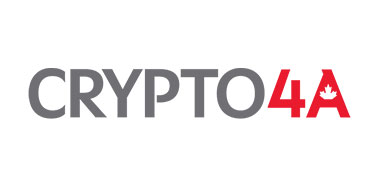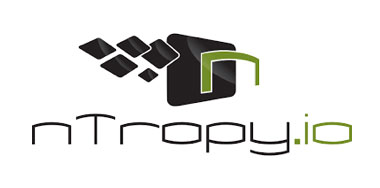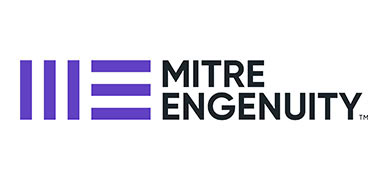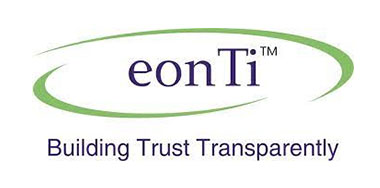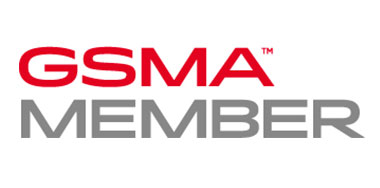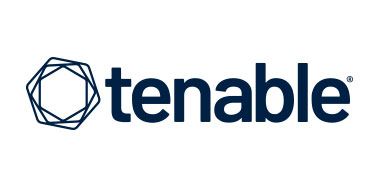











NTIA Awards SecureG $6M to Ensure Integrity and Interoperability of Open Radio Access Networks (O-RAN)
SecureG, Fujitsu and others partner to Develop Supply Chain Traceability for Open Radio Units (O-RU); Device Identity and Centralized Registry
SecureG Products
Root of Trust
SecureG empowers organizations with its customer-owned RoT that sets new standards for security, reliability, and compliance. With our comprehensive suite of services and state-of-the-art facilities, SecureG provides the foundation for secure computing solutions.
PKI-as-a-Service (PKIaaS)
Unleash the power of secure and scalable PKI. SecureG PKI as a Service (PKIaaS) is redefining digital security with cutting-edge Certificate Authority (CA), Registration Authority (RA), and Online Certificate Status Protocol (OCSP) solutions that integrate security, flexibility, and compliance.
Branded Calling ID / Call Signing
Branded Calling ID™ is the only industry-led, standards-based Rich Call Data (RCD) ecosystem engineered to be secure-by-design and to deliver trusted, branded calls nationwide for enterprise businesses.
Supply Chain Traceability
Transform certificates into business intelligence. Verify the origin and authenticity of hardware and software components. Establish the legitimacy of digital certificates and cryptographic keys with SecureG PKI. Trace the history of cryptographic operations, certificate issuance, and key management for auditing and compliance.
SecureG Agentic AI PKI
AI Agents acting and transacting on an owner’s behalf without a trusted identity is the latest cyber threat that networks and ecosystems are facing. The need for verified and trusted identity once again begins with PKI and certificate or token-based trust for Agentic AI.
Company
Who is SecureG?
SecureG is a cybersecurity company providing next-generation, certificate-based security for critical infrastructure in the private and public sectors.
SecureG PKI technology is designed to meet the demands of advanced IOT, OT, 5G, and Industry 4.0 requirements. SecureG enables supply chain-aware Zero Trust Architecture (ZTA) delivering government-compliant security, at scale with ultra-low latency for today’s and tomorrow’s networks.
Featured Use Case
SecureG Leadership
Charles Clancy
Chairman of the Board

Charles Clancy
Chairman of the Board
Dr. Charles Clancy is a professor in the Bradley Department of Electrical and Computer Engineering at Virginia Tech, and is Director of the Ted and Karyn Hume Center for National Security and Technology. With over 70 faculty and staff, the Hume Center leverages $10M to $15M in annual grants and contracts to engage 350 students in research and experiental learning focused in national security and technology. Additionally, Dr. Clancy leads efforts in developing and expanding the university’s role in cybersecurity research and education. Dr. Clancy is an internationally-recognized expert on the security of wireless and cellular networks, and has testified to Congress on cybersecurity issues.
Prior to joining Virginia Tech in 2010, Dr. Clancy spent seven years working for the US Department of Defense in a variety of research, engineering, and operations roles. The majority of his time was spent as a researcher with the Laboratory for Telecommunications Sciences, a federal research laboratory at the University of Maryland. There he led government research programs in wireless communications, with an emphasis on software-defined and cognitive radio. His research focused on efficient use of commodity processors for software-defined radio, and security implications involved in military use of cognitive radio technologies. During this time, Dr. Clancy was also heavily involved in wireless authentication and authorization protocol standardization, and held leadership positions within the Internet Engineering Task Force.
Dr. Clancy received his BS in Computer Engineering from the Rose-Hulman Institute of Technology in 2001, his MS in Electrical Engineering from the University of Illinois, Urbana-Champaign in 2002, and his PhD in Computer Science from the University of Maryland, College Park, in 2006. His studies focused on information-theoretic foundations of communications and security.
An avid entrepreneur, Dr. Clancy is co-founder of a number of companies, including HawkEye 360, focused on commercial space-based RF sensing; Federated Wireless, focused on next-generation wireless and spectrum sharing; Optio Labs, focused in mobile security; and Stochastic Research, a technical consulting firm. Additionally he serves as a founding advisor to DeepSig, a company focused on the intersection of machine learning and signal processing. These companies have collectively raised over $120M in venture capital.
Dr. Clancy is a Senior Member of the Institute for Electronics and Electrical Engineers (IEEE) and holds leadership positions within IEEE’s Communications and Signal Processing Societies. He has previously served as an editor for IEEE Transactions on Cognitive Communications and Networking and IEEE Transactions on Information Forensics and Security. In 2015, Dr. Clancy was elected to be a member of the prestigious AFCEA Intelligence Committee.
Dr. Clancy is co-author to over 200 peer-reviewed technical publications in academic conferences and journals and over 20 patents. His books include MIMO Radar Waveform Design for Spectrum Sharing with Cellular Systems (Springer 2016), Cellular Communications Systems in Congested Environments (Springer 2017), Spectrum Sharing between Radars and Communication Systems (Springer 2017), and Resource Allocation with Carrier Aggregation in Cellular Networks (Springer 2018).
Damon Kachur
CEO

Damon Kachur
CEO
As Chief Executive Officer of SecureG, Damon drives the adoption of the world’s most secure root of trust across government and industry initiatives, including The United States Air Force, SunSpec, and CTIA.
Damon has more than twenty years of experience driving cybersecurity excellence with a focus on PKI ecosystems for IoT and mobile networks. Damon established his PKI expertise with VeriSign and Symantec, where he was responsible for more than 1B IoT devices and 350M subscribers. Damon’s extensive PKI experience includes Sectigo, PrimeKey – Keyfactor, and Utimaco.
Damon is regularly invited to speak at security conferences and participate in panel discussions, where he shares his PKI expertise. Damon is co-author of US Patent 10560448 — One-touch secure on-boarding of OOB IoT devices. He earned his bachelor’s degree in business management and administration from the Eberhardt School of Business at the University of the Pacific in Stockton, CA. In his free time as a husband and a father, Damon enjoys racing automobiles and vintage car shows.
Todd Warble
CTO

Todd Warble
CTO
As CTO of SecureG, Todd leads the development of bespoke PKI solutions, aligned closely with government and industry working groups and standards, such as accelerating Zero Trust security strategies.
Todd has more than 20 years of experience securing and optimizing mission-essential networks, such as 5G, with PKI. Prior to SecureG, he was closely involved in the merger between Movik Networks and Anova Data, where he served as the VP of Solution Architecture for the former and the latter. Todd’s networking experience includes Cisco and Juniper.
Todd is devoted to cybersecurity education and has authored multiple books and created training facilities for security operations. He earned his bachelor’s degree in electrical, electronics, and communications engineering from Colorado State University. Todd is a family man who enjoys F1 racing.
James Gorman
Chief Information Security Officer

James Gorman
Chief Information Security Officer
As CISO of SecureG, James Gorman is committed to the highest standards of confidentiality, integrity, and availability for the world’s most secure root of trust.
James has more than 30 years of executive-level cybersecurity and network engineering experience with a mission to enable digital transformation and innovation. James began his career in the US Navy as a Cryptologic Technician and held executive positions at Cable and Wireless, SecureNet, and Transaction Network Services. He has successfully led teams through multiple audits, certifications, and migrations, delivering scalable, resilient, and cost-effective outcomes, such as universal security technologies for 5G networks.
James is passionate about staying ahead of the curve and delivering robust, reliable, quantum-safe PKI solutions and strategies.
Sean Turner
Technical Advisor – President, Sn3rd LLC

Sean Turner
Technical Advisor – President, Sn3rd LLC
Sean Turner has been involved in the IETF since IETF 34 and has authored or co-authored over 50 RFCs. From March 2007 to March 2014, Sean served on the IESG as the IETF Security Area Director. Prior to being appointed to the IESG, Sean was chair of the SMIME and XMPP WGs. Currently, Sean is chair of the TLS, MLS, and WPACK WGs. He is founder of sn3rd llc, which focuses on policy, design, and implementation of security solutions, and is author of the Implementing Email and Security Tokens: Current Standards, Tools, and Practices (John Wiley and Sons, 2008).
Media
Whitehouse Report on Post Quantum Cryptography
Ensuring Critical Infrastructure Security with Quantum-Resistant Cryptography. Federal agencies and critical infrastructure must urgently prepare for the next frontier in cybersecurity: quantum-resistant cryptographic systems (PQC).
Branded Calling ID: Restoring Trust in Voice Calls
The simple act of answering a phone call has become a gamble. With the surge in spam, robocalls, and voice phishing (vishing), consumers are increasingly hesitant to pick up calls from unknown numbers.
Securing the Future: Digital Certificates in 5g Networks
Here we explore the crucial role of digital certificates in securing modern networks and discuss five intriguing points about their applications.
Securing the software supply chain for Government
In Biden’s Executive Order on Improving the Nation’s Cybersecurity, mandates for the security of the software supply chain were explicitly laid out.

